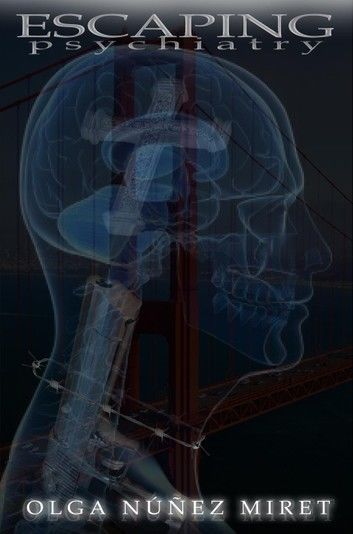'Escaping Psychiatry' has it all: intriguing characters, noir style, thrilling pursuits, dangerous situations, crime, serial killers, religion, family secrets, murder, psychological insights, mental illness, trauma, debates about prejudice and morality, heated trials, police investigations, corruption, and mystery. If you enjoy 'Wire in the Blood', 'Cracker' and 'Lie to Me' and you are not scared of going deeper and darker, dare to read on.
'Escaping Psychiatry' is a collection of three stories with the same protagonist, Mary, a psychiatrist and writer. She is trying to develop her literary career but circumstances and friends conspire to keep dragging her back to psychiatry.
In 'Cannon Fodder', Phil, a lawyer who and Mary's friend asks her to provide a report on one of his clients, a young African-American man called Cain White. Cain is a very religious man and has been accused of inciting a riot at a religious meeting. He says he can hear God's voice. He insists that God is black and his appears to be a Black Nationalist message. Is Cain insane, deluded, misguided, looking for media-attention, or a Saint? To find an answer to these questions Mary talks to his family and friends. Although she concludes he is sane,Mary's investigation uncovers some very damaging revelations about his family life, beliefs and local attitudes. Who is a saint and who is a sinner is a matter for debate. The more Mary gets involved in the lives of Cain and those close to him the more she realises how dangerous secrets are. Like time-bombs ready to set off any minute.
'Teamwork': Captain Tom McLeod, from the San Francisco Police Department, invites Mary for a meal at home with his wife. When she meets their other guest, a young detective called Justin, she quickly realises there is an agenda well beyond a friendly meal. Justin's partner, mentor and father figure, Sgt David Leaman, was killed a couple of months earlier during a routine investigation. Justin witnessed the event but he insists in going back to work and refusing any therapy or counselling. Tom and others at the department are concerned about his mental state but have failed to convince him to accept professional help. Both Mary and Justin are reluctant to engage in the ambush/informal consultation organised, but eventually decide to give it a try. At first sight it appears to be a straight forward case of unresolved grief, but things aren't as clear-cut as they appear and Mary ends up getting too personally involved with the case, to the detriment of her professional objectivity.
In 'Memory', Mary runs out of her apartment after a difficult encounter with her friend Phil, and goes missing. When she is found it seems that she was hit in the head, abducted, raped and she is suffering from amnesia. She never recovers memory for the assault and finds it difficult to come to terms with something she cannot recall. The clues point towards a serial killer who could not finish his job in her case. But some things do not fit in. Who disturbed the killer? Why was she left there? The crime and the investigation surrounding it have a profound impact on Mary who decides that she needs to reconsider her life and start anew.
The epilogue revisits Mary at the point of the trial of her abductor and sees what changes have taken place in her life. Will she finally manage to Escape Psychiatry?
Although these stories are fictional, the author, a forensic psychiatrist, brings her expertise and insight to the material, lifting it above a standard crime caper.











